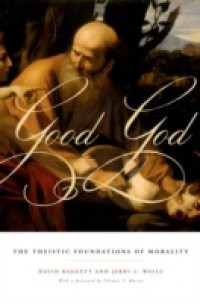This book aims to reinvigorate discussions of moral arguments for Gods existence. To open this debate, Baggett and Walls argue that Gods love and moral goodness are perfect, without defect, necessary, and recognizable. After integrating insights from the literature of both moral apologetics and theistic ethics, they defend theistic ethics against a variety of objections and, in so doing, bolster the case for the moral argument for Gods existence. It is the intention of the authors to see this aspect of natural theology resume its rightful place of prominence, by showing how a worldview predicated on the God of both classical theism and historical Christian orthodoxy has more than adequate resources to answer the Euthyphro Dilemma, speak to the problem of evil, illumine natural law, and highlight the moral significance of the incarnation and resurrection of Christ. Ultimately, the authors argue, there is principled reason to believe that morality itself provides excellent reasons to look for a transcendent source of its authority and reality, and a source that is more than an abstract principle.

